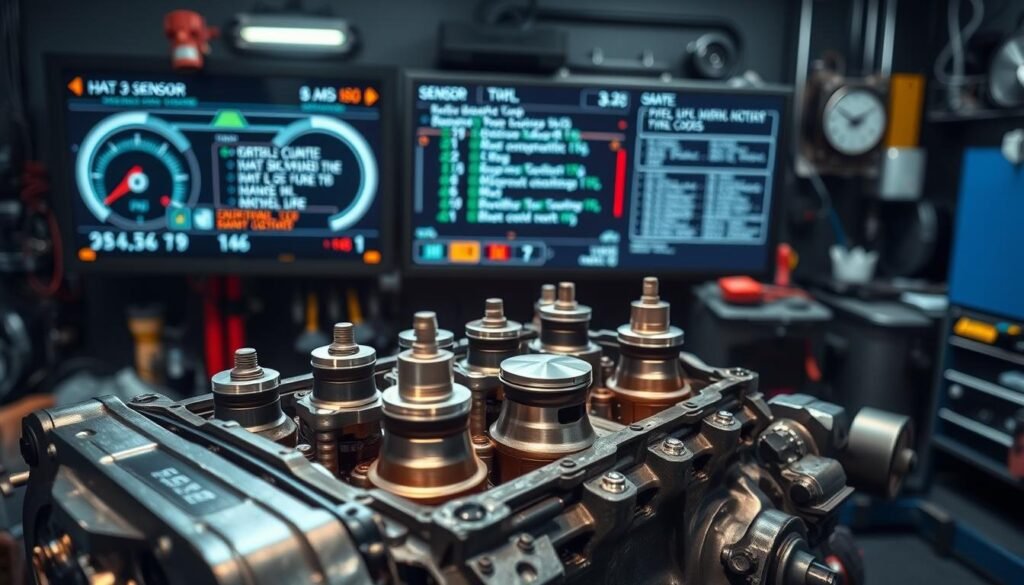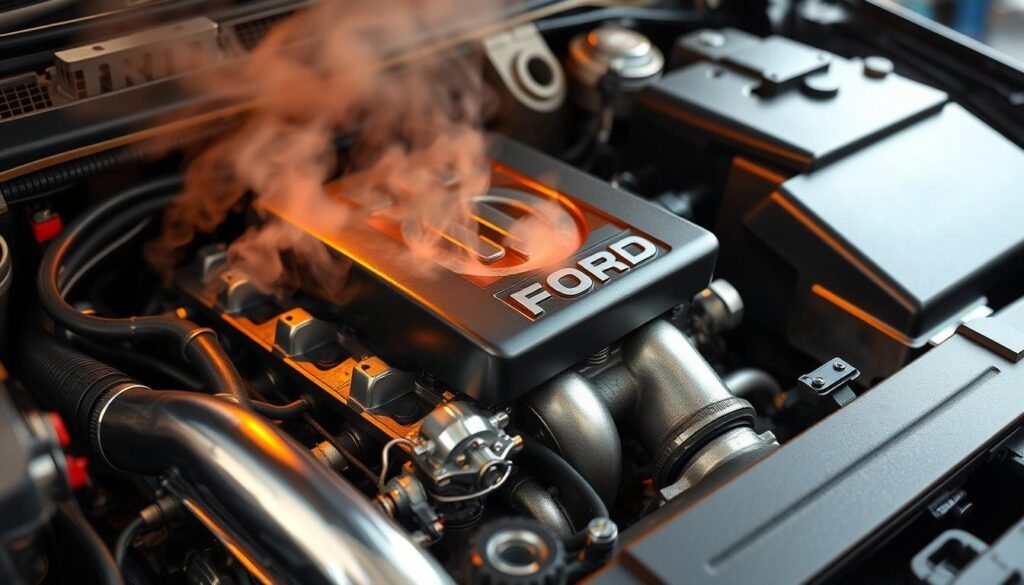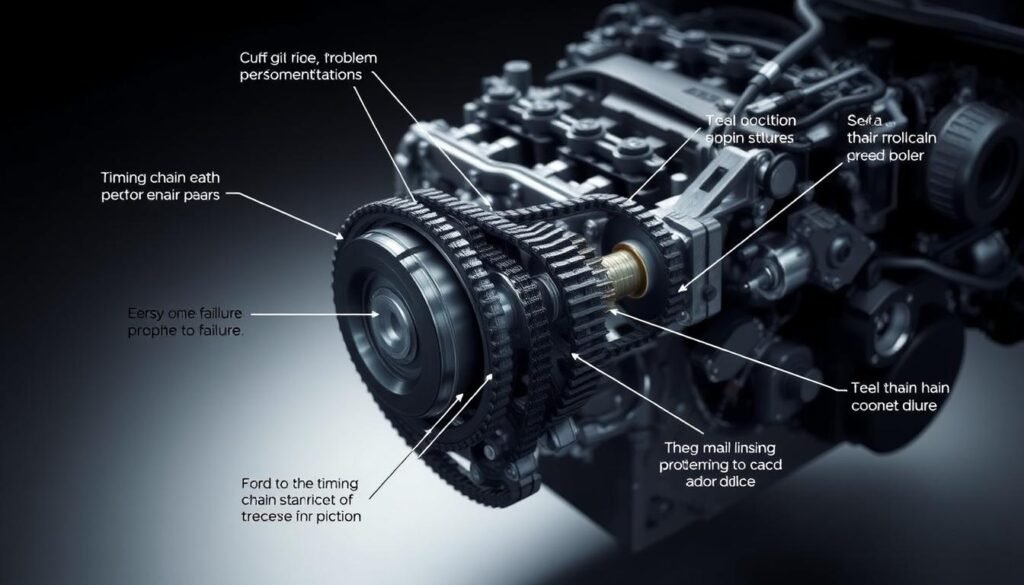Common Ford 3.0 V6 Engine Problems Revealed
The Ford 3.0 V6 engine is reliable in many Ford models from 1993 to 2012. But, it can face common problems if not well maintained.
This article will help you spot these issues and fix them. You’ll learn about symptoms, causes, and how to improve your engine’s performance.
We’ll talk about issues like misfires, overheating, oil leaks, and timing chain problems. By following our advice, you can tackle these challenges and make your car last longer.
Knowing these problems helps you take care of your engine, keeping it running well for years.
Introduction To The Ford 3.0 V6 Engine
The Ford 3.0 V6 engine is known for its reliability. It’s part of the Ford Duratec family. It powered many Ford models, like the Contour, Taurus, and Escape.
It was made from 1993 to 2012. This engine has a 60-degree design and a size that ranges from 2.5 to 3.0 liters.
It has four valves per cylinder and variable valve timing. These features make it strong and efficient.
Even though it’s well-built, the Ford 3.0 V6 engine has some common problems. Knowing about these can help keep your car running well for a long time.
Overview of Common Ford 3.0 V6 Engine Problems
The Ford 3.0 V6 engine is known for its versatility but faces several challenges. Many owners deal with issues like misfires.
These can be caused by bad spark plugs or faulty ignition coils. Another big problem is overheating.
This often happens when there’s not enough coolant or when the water pump fails. Oil leaks are also common, leading to poor engine performance and more problems if not fixed quickly.
High-mileage vehicles often have timing chain wear. This can cause the timing chain to fail, affecting the engine’s performance. Burned exhaust valves can also damage the engine if not fixed.
Engine noise from hydraulic lash adjusters is another issue that needs attention, as it may point to deeper mechanical problems.
Ford 3.0 V6 Engine Problems: Misfires Explained
Misfires are a big worry for Ford 3.0 V6 engine owners. It’s important to know what causes them and how to fix them.
Signs include a rough engine, stumbling when you accelerate, and less power overall. Finding the cause is key to keeping your engine running well and lasting longer.
What is Misfire Issues?
Misfires in the Ford 3.0 V6 engine often come from ignition system problems. The COP ignition system can fail, leading to sparks not being delivered right.
This can mess with how your car drives and how much fuel it uses. Fixing these problems quickly can stop them from getting worse and make your engine run better.
Common Fault Codes Associated with Misfires
Using an OBD-II scanner can help find engine troubles if you think your Ford 3.0 V6 is misfiring.
Here are some common fault codes:
| Fault Code | Description |
|---|---|
| P0300 | Random/Multiple Cylinder Misfire Detected |
| P0301 | Misfire Detected in Cylinder 1 |
| P0302 | Misfire Detected in Cylinder 2 |
| P0303 | Misfire Detected in Cylinder 3 |
| P0304 | Misfire Detected in Cylinder 4 |
| P0305 | Misfire Detected in Cylinder 5 |
| P0306 | Misfire Detected in Cylinder 6 |
These codes tell you where the misfire is happening. Regular maintenance, like changing spark plugs and COPs, can help prevent misfires. This makes your Ford 3.0 V6 engine more reliable.

Overheating Issues in The Ford 3.0 V6 Engine
Overheating can seriously harm your Ford 3.0 V6 engine. It’s important to know the causes of engine overheating to prevent and manage it.
Several factors can cause overheating, and knowing them can help avoid costly repairs.
Common Causes of Overheating
Several issues can lead to Ford 3.0 V6 overheating problems. Key factors include:
- Stuck thermostats, which prevent the coolant from circulating properly.
- Cooling system failures, including leaks or blockages in hoses and radiators.
- Blown head gaskets that compromise the engine’s ability to hold coolant and manage temperature.
- Poorly functioning water pumps that fail to circulate coolant effectively.
- Low coolant levels from leaks or inadequate maintenance.
Symptoms and Consequences of Overheating
It’s vital to recognize the symptoms of overheating early. Some common signs include:
- Elevated temperature readings on the engine gauge.
- Steam or smoke emerging from the engine bay.
- A noticeable loss of coolant without visible leaks.
If you ignore these symptoms, you could face serious problems. These can include:
- Warped engine components, making repairs harder.
- Increased risk of engine failure, requiring a total replacement.
- Damage to other critical systems in the vehicle due to excessive heat.

Oil Leaks and Their Impact on Performance
Ford 3.0 V6 oil leaks can come from different parts of the engine. Knowing where these leaks happen and how they affect your car’s performance is key. It helps keep your engine in top shape.
Typical Locations For Oil Leaks
There are a few spots in the Ford 3.0 V6 engine where oil leaks are common. These include:
- Front timing cover
- Crankshaft seals
- Valve cover gaskets
Each leak can weaken the engine. This can lead to problems with how well your car runs and how reliable it is.
Consequences of Ignoring Oil Leaks
Not fixing Ford 3.0 V6 oil leaks can cause big problems. Without enough oil, your engine can suffer from:
- Increased wear on engine parts
- Potential engine overheating
- Severe lubricating failures
- Risk of engine seizure
It’s important to check your engine regularly and replace seals when needed. This helps prevent these issues and keeps your engine running smoothly.

Timing Chain Tensioner Problems
The timing chain tensioner is key in your Ford 3.0 V6 engine. It keeps the timing chain tight. Over time, tensioners can wear out and fail.
This can harm your engine’s performance. Knowing about Ford 3.0 V6 timing chain issues helps keep your car running well. It ensures your vehicle lasts longer and works better.

How Timing Chain Failure Affects The Engine
A failing timing chain tensioner can make the timing chain loose. This might cause the chain to slip or fall into the crankcase. Such a problem can lead to oil starvation, damaging your engine.
Broken timing chains can cause severe misfires, power loss, or even engine failure. This greatly affects your driving experience.
Indicators of Timing Chain Tensioner Issues
Knowing the signs of timing chain tensioner failure can prevent bigger problems. Look out for:
- Unusual noises from the engine, like rattling or tapping.
- A rough or inconsistent engine idle, which might mean timing issues.
- Less engine performance, noticeable when accelerating.
Regular checks of the timing system can spot these early signs. This keeps your vehicle in top shape.
Ford 3.0 V6 Engine Problems: Exhaust Valve Concerns
Spotting Ford 3.0 V6 exhaust valve problems early can save a lot of money. Burned exhaust valves are common in high-mileage engines.
They cause power loss and high exhaust temperatures, leading to more issues.
Identifying Burned Exhaust Valves
Look out for signs like:
- Difficulty starting the engine
- Rough idling and misfires
- Decreased acceleration
- Increased exhaust smoke
A compression test can show if valves are working right. Any odd results mean you should act fast.
Repair Options For Damaged Valves
Fixing burnt valves is hard work and might uncover more problems. You can:
- Replace valves: This is the best fix for badly damaged ones.
- Grind valves: This method works for valves that are just a bit worn.
- Do a complete valve job: This means cleaning, checking, and replacing everything, for lasting results.
Knowing how to fix burnt valves helps you face repair challenges. Quick diagnosis and action can prevent bigger problems and costs.
Hydraulic Lash Adjusters and Engine Noise
The Ford 3.0 V6 hydraulic lash adjusters are key to keeping the engine running well. They help the valves work right, which makes the engine perform better and quieter.
But, if they wear out, it can cause trouble. It’s important to listen to your engine for strange sounds.
If the hydraulic lash adjusters aren’t working right, you might hear odd noises. This could mean there’s a problem that needs fixing.
The Role of Hydraulic Lash Adjusters in Engine Performance
Hydraulic lash adjusters are essential for a good engine. They adjust the valve clearance to keep the engine running smoothly. This helps the engine last longer and use less fuel.
Common Noises Indicative of Adjuster Problems
When hydraulic lash adjusters go wrong, you might hear:
- Ticking or tapping noises during engine operation
- Intermittent knocking sounds, mainly when starting
- Unusual sounds that get louder as the engine RPM increases
These sounds mean the adjusters might be failing. It’s important to fix this quickly to avoid more damage. Regular checks can help keep your Ford 3.0 V6 running well.
| Noise Type | Possible Cause | Recommended Action |
|---|---|---|
| Ticking | Worn hydraulic lash adjusters | Inspection and possibly replacement |
| Knocking | Collapsed adjuster | Immediate evaluation of drivetrain components |
| Increasing noise with RPM | Insufficient lubrication | Check oil levels and quality |
Common Troubleshooting Methods For Ford 3.0 V6 Engine Problems
Fixing Ford 3.0 V6 engine issues needs a clear plan. This includes checking everything carefully and understanding the symptoms.
Using the right steps helps find problems fast and avoid mistakes that could make things worse.
Pitfalls To Avoid During Troubleshooting
When you’re trying to find engine problems, watch out for these common mistakes:
- Jumping to conclusions without doing enough tests can waste time and money.
- Not following the maker’s instructions can cause you to miss important checks.
- Thinking small problems are not important can lead to bigger repairs later.
- Not keeping track of your findings can make future fixes harder.
When To Seek Professional Help?
Some problems need a pro’s touch. You should get help if:
- Problems keep coming back even after you’ve tried to fix them.
- Fixing the issue needs special tools or skills you don’t have.
- The engine has complex issues that you can’t handle on your own.
Conclusion
The Ford 3.0 V6 engine is known for its reliability. Yet, it faces some common problems. Knowing about these issues, like misfires and overheating, helps keep your engine in top shape.
Adding Ford 3.0 V6 engine maintenance tips to your car’s care routine boosts performance. It also makes your vehicle last longer.
Being aware of engine problems helps avoid expensive fixes. Checking for oil leaks and fixing hydraulic lash adjuster sounds improves your engine’s performance. This knowledge is key to being a good car owner.
By sticking to regular maintenance and knowing about these issues, you’ll have a better driving experience. Your Ford 3.0 V6 engine will thank you for the extra care.
FAQs
Q: What are the common problems associated with the Ford 3.0 V6 engine?
A: Issues include misfires, overheating, and oil leaks. Other problems are timing chain tensioner issues, burned exhaust valves, and hydraulic lash adjuster problems.
Q: How can I troubleshoot misfires in my Ford 3.0 V6 engine?
A: First, check the ignition system and spark plugs. Look for fault codes P0300 through P0306 for specific cylinder misfires.
Q: What causes overheating in the Ford 3.0 V6 engine?
A: Overheating can be due to stuck thermostats, cooling system failures, or blown head gaskets. Keep an eye on engine temperatures to spot problems early.
Q: Where are the common locations for oil leaks in the Ford 3.0 V6 engine?
A: Oil leaks often happen at the front timing cover, crankshaft seals, and valve cover gaskets. Regular checks can help find and fix these leaks.
Q: What are the signs of timing chain tensioner problems?
A: Unusual engine noises and rough operation suggest timing chain tensioner issues. Regularly inspect the timing system to catch these problems early.
Q: How can I identify burned exhaust valves in my engine?
A: Signs include loss of power and high exhaust temperatures. These repairs are complex, so spotting them early is key.
Q: What role do hydraulic lash adjusters play in engine performance?
A: Hydraulic lash adjusters reduce engine noise and improve performance by ensuring optimal valve operation. Neglecting them can lead to collapse and increased noise.
Q: When should I seek professional help for my Ford 3.0 V6 engine issues?
A: If symptoms persist or repairs are too complex, get a professional mechanic’s help. This can prevent further damage.







